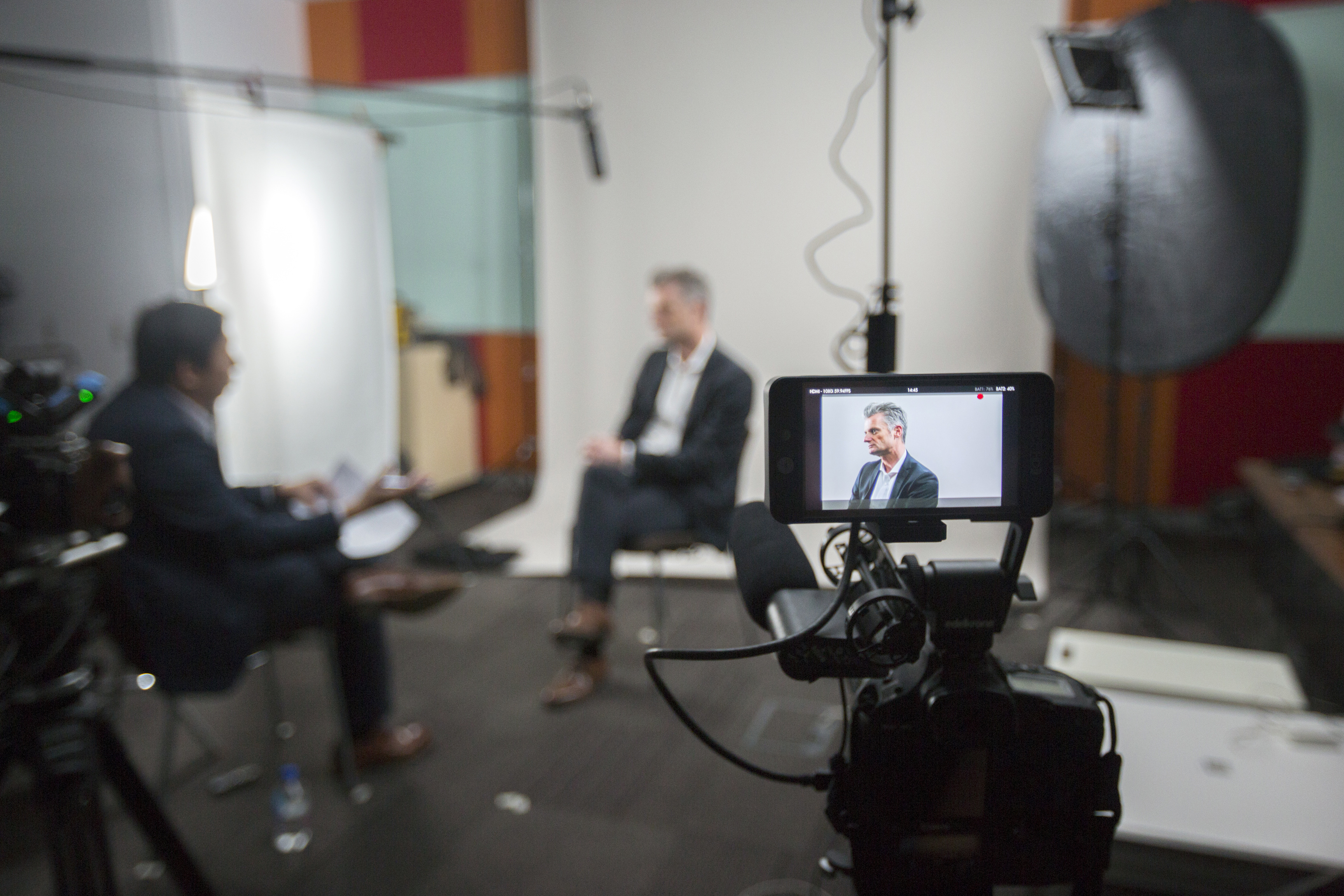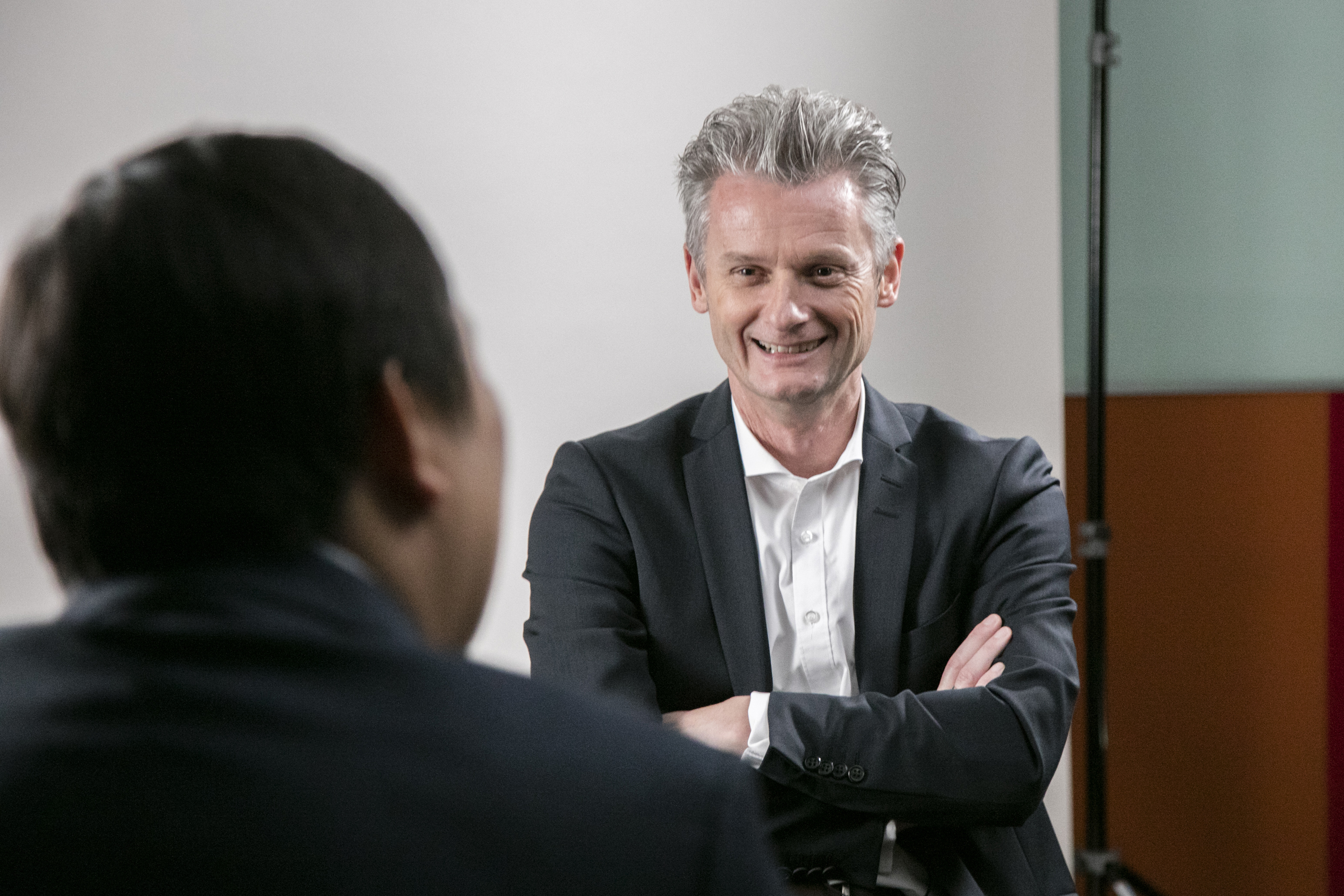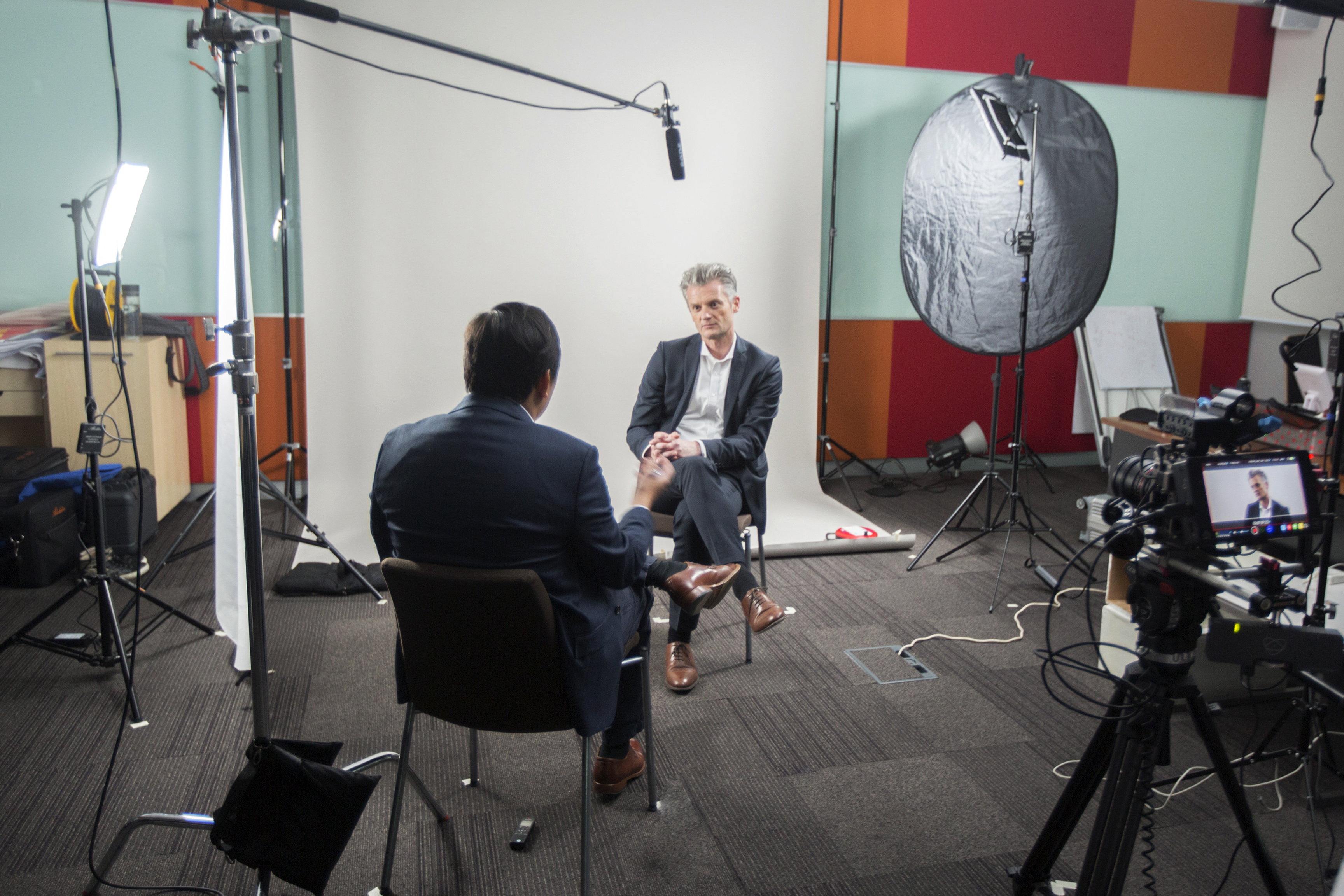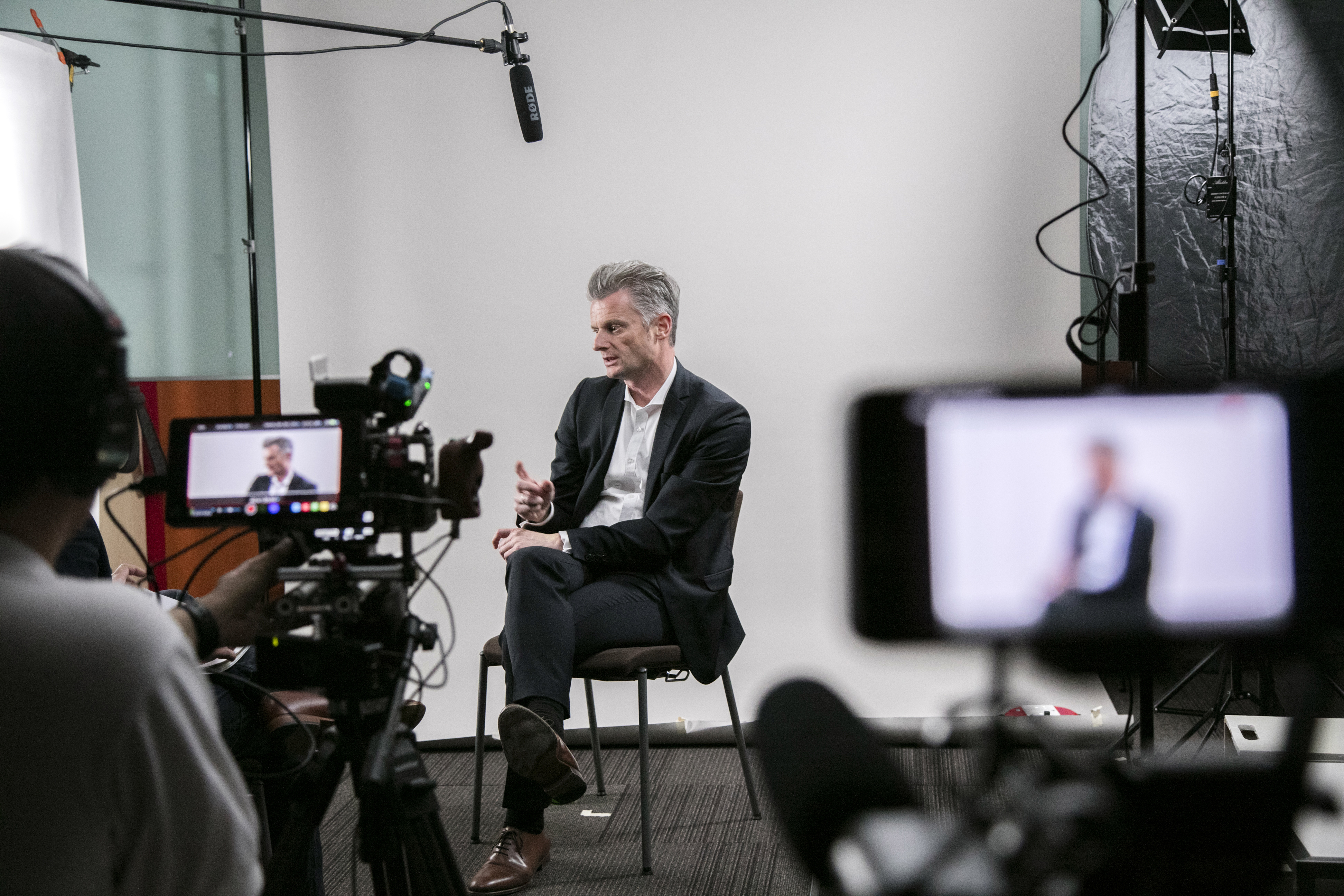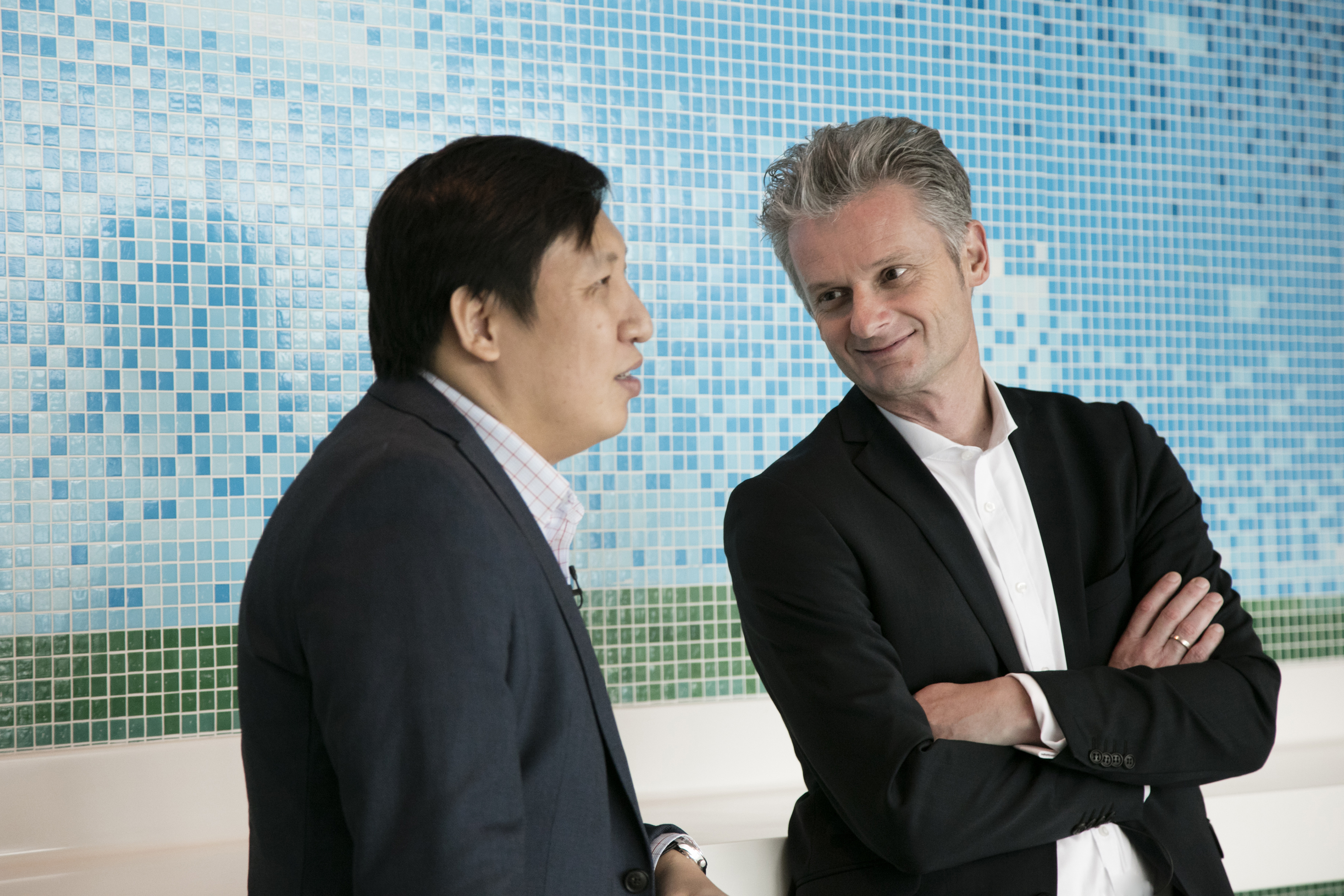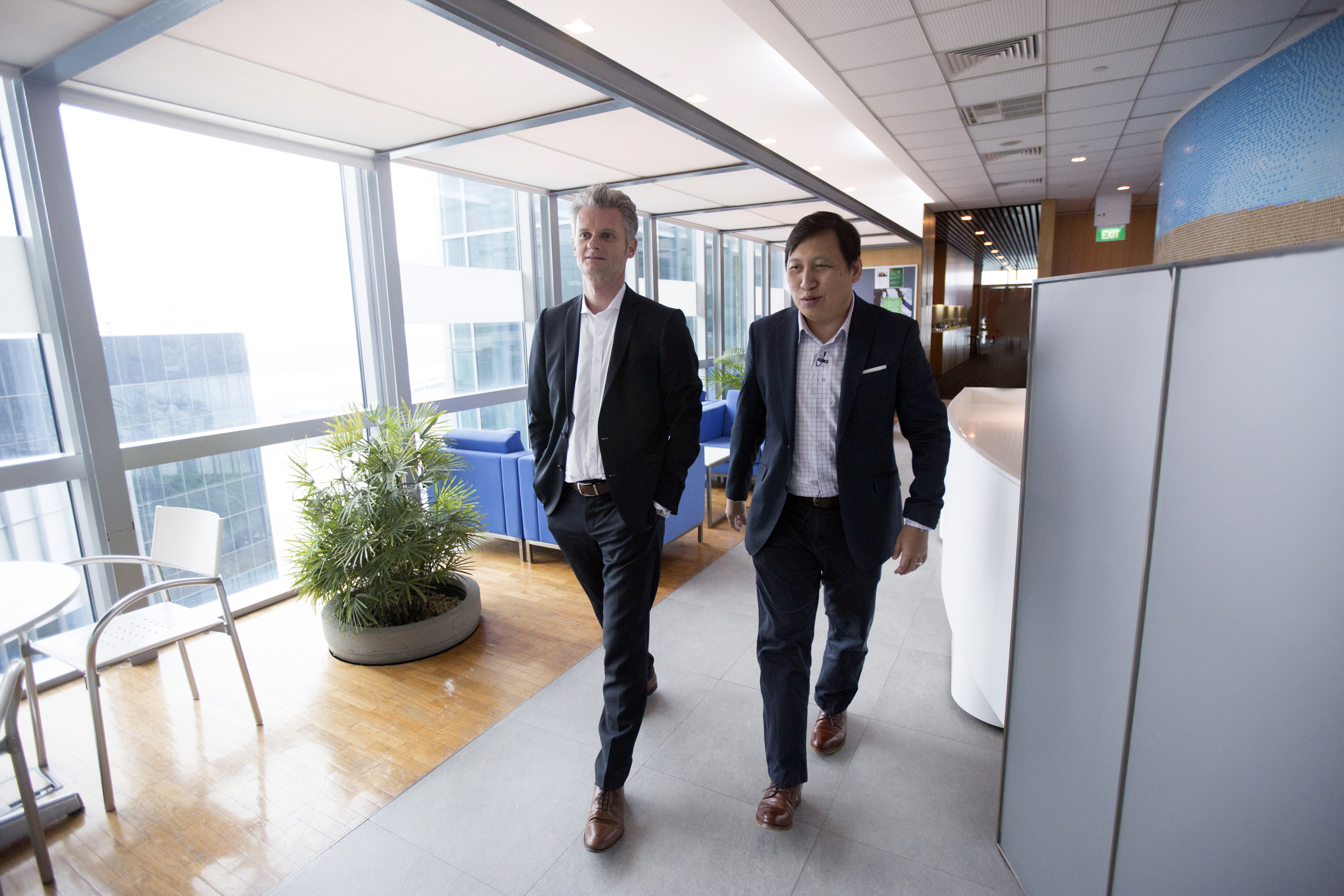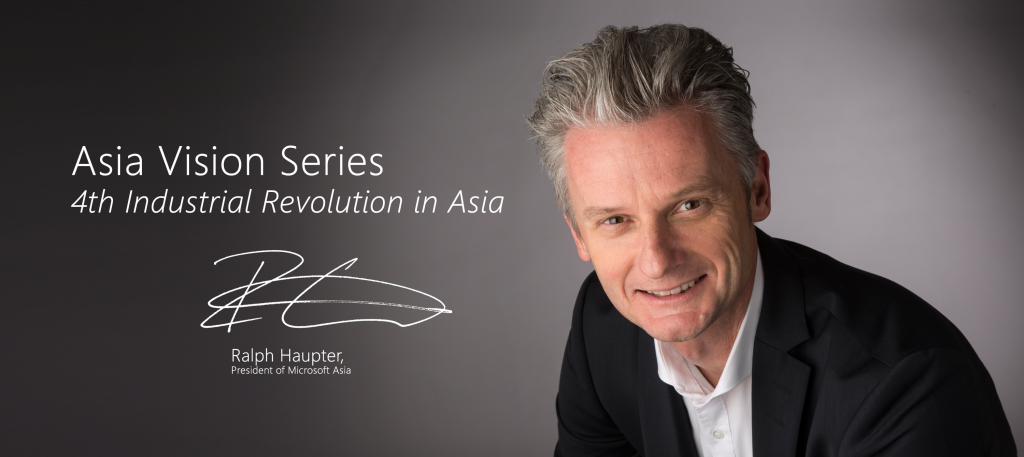
Riding the digital disruption wave
In our Asia Vision Series features, we dive into key industry trends and issues with our subject matter experts and visionaries in the region. In part 2 of 3 in this interview, Alfred Siew, a veteran journalist formerly with Singapore broadsheet The Straits Times and founding editor of a popular technology blog, interviews Ralph Haupter, president of Microsoft Asia. He discusses how the 4th Industrial Revolution is changing the way people work, live and play – and how we can embrace the positives amid the digital disruption.
“Do people have anything to worry about the 4th Industrial Revolution?” Ralph Haupter puts forth the rhetorical question.
The president of Microsoft Asia explains that it is matter of perspective – pessimists could of course easily look at the technological revolution and wonder if we may indeed be headed towards a darker future in which robots and automation drive millions of people out of the workforce, widen the income gap, or even worry about privacy and security with the collection of personal information and surveillance.
This would not be the first time that breakthrough technologies will become a catalyst for profound changes in people’s lives. Haupter outlines that there have generally been three major industrial revolutions so far – the invention of steam power, then the introduction of electricity, followed by digital information processing and communications. In each of these periods, we saw dramatic technology innovation creating significant disruption as traditional industries were impacted and old jobs gave way to new occupations.
“Imagine how traffic on roads might have looked like 100 years ago – horse-drawn carriages or rickshaws would have been commonplace. Fast forward to today with the benefit of various advancements, motor vehicles are now the main mode of convenient transport. And of course, along with that, the jobs of those coachmen and rickshaw drivers have been made similarly obsolete”
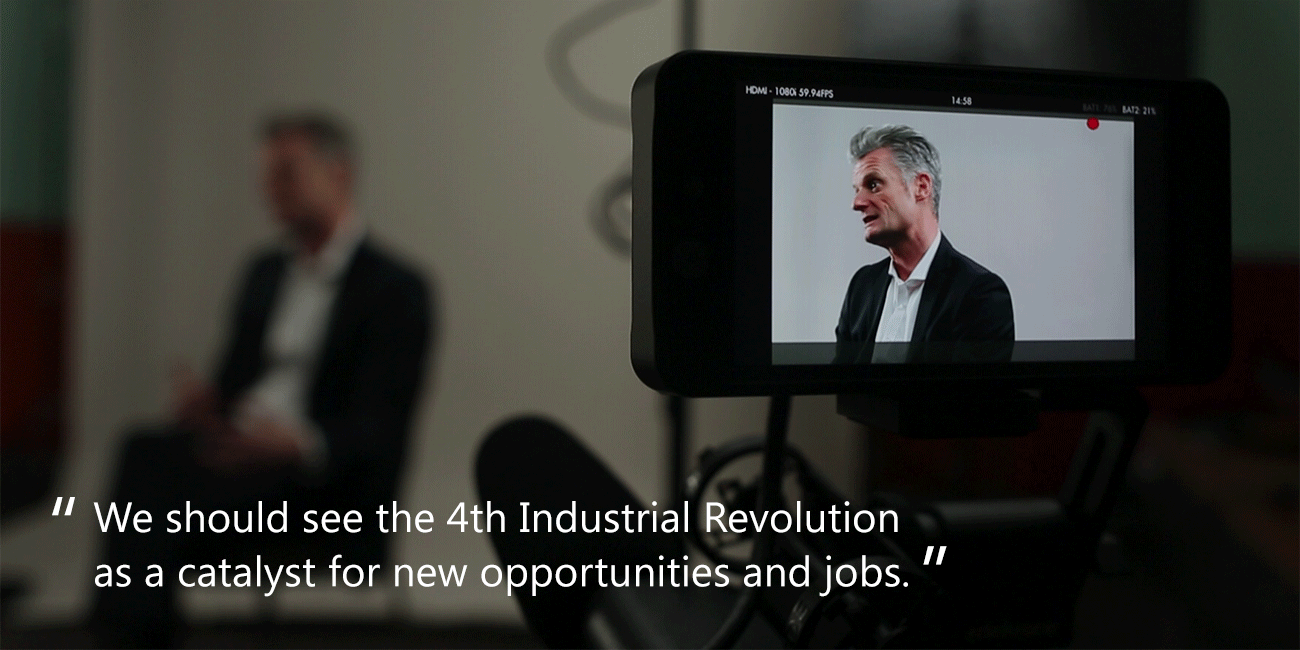
We should see the 4th Industrial Revolution as a catalyst for new opportunities and jobs.
Disruption is inevitable, and this time with the confluence of various new emerging technologies, there is a sense that the impact will be deeper, swifter and further reaching.
Instead of resisting change, we should see the industrial revolution as a catalyst for new opportunities, as well as improvements in economic and living standards.
“I think this is always part of change where people are anxious, and for the right reason. They want to understand what the disruption actually means for them on a personal level. At this stage, some people may not see the opportunity, the focus may be on jobs lost through new ways of production or doing things, but at the same time we are also actually generating a whole new set of jobs with different criteria,” he adds.
There are numerous examples in Asia. For one, India’s push to make digital and mobile payments mainstream is creating opportunities for small businesses and bringing convenience to those without a bank account or credit card. In a country where over 90 percent of transactions are cash-based, cashless payments are being adopted not just among the digerati, but across vast segments of society, including fishmongers, street stall owners, and taxi drivers.
The same is happening in Indonesia, says Haupter. “I’ve had the opportunity to meet some government leaders in Indonesia recently, and they are working on helping farmers to get the products not only delivered across the country, but to empower them to sell their goods instantly with through virtual market places and digital payment systems,” he points out. “This not only opens up new markets and revenue streams for them, but also enables them to better plan their resources according to market demand.”
Perhaps more important is what societies will be missing out on if they resist embracing innovation or changes from happening – there are positives they would never enjoy.
“Should doctors fear that technology and digital tools are replacing their jobs? On the flipside, predictive analytics enables them to make more accurate diagnosis and deliver telemedicine to patients in remote areas,” says Haupter.
There are many more exciting hints of what the future may hold as people begin to discover how to use and benefit from cloud computing, advanced analytics, artificial intelligence, mobile devices, connected sensors, 3D printing, geolocation, and a host of other related emerging technologies. This is not just to look at old problems in new ways but to also envision capabilities that until recently were impossible to imagine.
 Ralph Haupter
Ralph Haupter
President, Microsoft Asia
Based in Singapore, Ralph Haupter leads Microsoft’s business in a dynamic region that includes 17 subsidiaries in 42 territories and countries, over 17,000 employees, and over 100,000 partners. He is responsible for all of Microsoft’s product, service and support offerings across the region, and accelerating the company’s current transformation to being the leading productivity and platform company for the mobile-first, cloud-first era. A key area of focus for Haupter is enabling Microsoft’s customers in Asia to accelerate momentum, as they embark on their own journey of digital transformation.
 Alfred Siew
Alfred Siew
Alfred is a writer and speaker with close to 20 years of experience in journalism and communications in Singapore and Southeast Asia. Previously a technology correspondent with Singapore’s national broadsheet The Straits Times, he has covered the regional technology scene for over a decade. He now runs a popular technology blog – which is keenly followed by consumers, CEOs and government regulators alike, as well as his own editorial consultancy firm.





